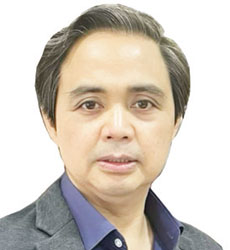THE Philippine Public Safety College (PPSC) has celebrated its 31st anniversary as one of the nation's special higher education institutions. The role of PPSC to ensure peace, public order and societal security cannot be understated.
Republic Act 6975 established the PPSC as the premier school for the training, human resource development and continuing education of all personnel of the Philippine National Police (PNP), Bureau of Fire and Protection (BFP), and Bureau of Jail Management and Penology (BJMP). Most uniformed officers from these tri-bureaus are graduates of the PPSC. It is not surprising that the PPSC has left a lasting impression on them for years to come.
Already have an active account? Log in here.
Continue reading with one of these options:
Continue reading with one of these options:
Premium + Digital Edition
Ad-free access
P 80 per month
(billed annually at P 960)
- Unlimited ad-free access to website articles
- Limited offer: Subscribe today and get digital edition access for free (accessible with up to 3 devices)
TRY FREE FOR 14 DAYS
See details
See details
If you have an active account, log in
here
.


